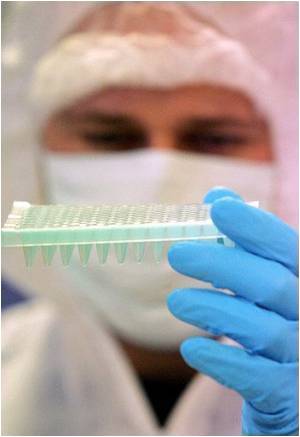Genetic variation that occurs in drug target sites can alter the response of a drug on that individual.

‘GPCR variant characterization can help pharmaceuticals develop drugs with increased precision and improve patients quality of life.’





By mining existing data sets, they have mapped the extent to which mutations occurred within GPCR drug targets in individuals and studied what impact these mutations could have on the therapeutic effect of medicine.'We estimate that an average of 3 percent of the population have receptors that contain mutations which can alter the effect of medicine', says first author of the study, Ph.D. Fellow Alexander Hauser from the Department of Drug Design and Pharmacology at the University of Copenhagen.
'This might mean that the medicine simply works less efficiently. It can also mean that the medicine does not work at all or causes adverse effects on patients', adds Madan Babu, last author of the study, from the MRC Lab of Molecular Biology in Cambridge, where Hauser conducted this research.
The researchers have analyzed the mutations in human GPCRs by using whole genome sequencing data from the 1,000 Genomes project with about 2,500 participants as well as exome data from the ExAC project with over 60,000 participants.
They then used structural data to infer critical sites in GPCRs to uncover which mutations are more likely to alter the outcome of medicine.
Advertisement
The researchers use their findings and sales data for the 279 GPCR-relevant drugs from the National Health Service in the UK to estimate how much money is spent on medicine with little or no effect.
Advertisement
'The prevalence and potential impact of variation in drug response between individuals is a strong argument for further researching this field. It also constitutes a fine example of why personalized medicine might be the way forward; even when we are talking about common drugs', says Hauser.
Source-Eurekalert











